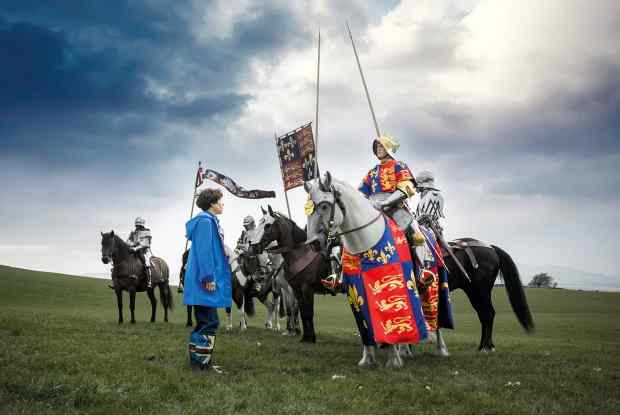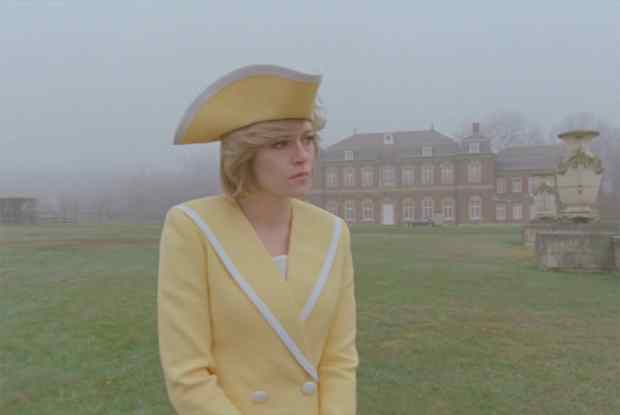The Imitation Game is a biopic starring Benedict Cumberbatch as Alan Turing, the brilliant mathematician who broke the German’s Enigma code during the war, created the blueprint for the modern computer and was then hounded to death by the authorities for being gay, the bastards. It’s a fascinating story, as well as one of those stories that needs to be told, over and over if necessary, but I just wish it had been told here with a little more guts and flair. This is solid, sturdy and offers a few great moments. But it is rather formulaic, and as much in the closet as Turing ever was. Still, a decent if conventional Troubled Genius Film has to be worth any number of Interstellars, which, according to some readers (of the male variety) commenting online, I failed to find the most fulfilling experience of my life because I was ‘on the rag’. Oh, yes. That explains that then. Silly, silly me.
This is directed by Morten Tyldum, the Norwegian otherwise known for the excellent thriller Headhunters. And it is divided into three time zones: 1952, when Turing is arrested for gross indecency and is being questioned by a policeman (Rory Kinnear); the war years, when he is working at Bletchley Park under Commander Denniston (Charles Dance, who actually bothers to slightly act, for a change, and not just do Charles Dance); and as a bullied, unhappy schoolboy with only the one friend, Christopher, to whom he passes notes that are coded in more ways than one. At this point, and before the thought gets away, I would like it noted that Alex Lawther, who plays Turing as a boy, is absolutely outstanding, and his scenes are among the most moving in the film.
But the spine of it, the meat, all happens at Bletchley Park where, in his first interview, Turing convinces Denniston he needs him more than he needs Bletchley, and basically runs circles round him. This is how these biopics work, but it’s still enjoyable, and there are some excellent funny moments. The Imitation Game takes itself seriously but, at the same time, never loses its sense of humour, unlike that other film, the one I would have totally loved if only I hadn’t been suffering from lady troubles. This scene immediately establishes Turing’s character as ‘an odd duck’, to use the words of his mother, although, today, he would probably be described as ‘somewhere on the spectrum’. He doesn’t understand jokes. He doesn’t understand the nuances of social interaction. He avoids eye contact. This is a star vehicle for Cumberbatch and, within the confines of the genre, he runs with it. Turing isn’t especially likable. He is difficult and arrogant and obnoxious, as his fellow code-breakers will discover, but Cumberbatch makes him lovable and vulnerable and heroic, and awards him a depth he otherwise wouldn’t have. (I would also like it to be noted that, much as I adore Cumberbatch, when he recently announced his engagement I did not weep, as I’m an optimist at heart, and the way I look at it is this: he may one day get divorced!)

But back to Bletchley, where Turing is teamed with those fellow code-breakers, including Joan Clarke (Keira Knightley), a brilliant mathematician and all-round brainbox who is, of course, mistaken for a secretary when she first arrives, as can happen when men have fixed ideas about women. Inevitably, everyone comes round to Turing in the end, but it’s Joan who befriends and defends him from the off, and to whom he becomes engaged. (She knows, but doesn’t care. It’ll be a marriage of minds, she tells him. She is rather marvellous, and also speaks railly, railly posh.)
What the film does well it does very well. It is neatly tailored for a general audience and doesn’t throw a ton of maths and science in your face. There are no fifth dimensions or wormholes and no one writes equations on a blackboard. But we perfectly understand the race against time, what breaking Enigma would mean, and Tyldum makes it all remarkably suspenseful. We also perfectly understand all the ironies; that here was a man uncovering secrets for the nation while hiding his own; that here was a man who saved many, many lives, but could not save himself.
But — and it’s quite a big ‘but’ — this just isn’t daring enough; it’s frustratingly safe. We never see Turing grappling with his own sexuality. Did he accept it? Or not? There are no sex scenes. We don’t see him ever touch another man. He died for his sexuality, but here it rather feels like a footnote. That said, and despite its limitations, I would still maintain it is worth any number of Interstellars and has plenty more to say. Damn. Must be ‘on the rag’. Again.
Got something to add? Join the discussion and comment below.
Get 10 issues for just $10
Subscribe to The Spectator Australia today for the next 10 magazine issues, plus full online access, for just $10.
You might disagree with half of it, but you’ll enjoy reading all of it. Try your first month for free, then just $2 a week for the remainder of your first year.













Comments
Don't miss out
Join the conversation with other Spectator Australia readers. Subscribe to leave a comment.
SUBSCRIBEAlready a subscriber? Log in